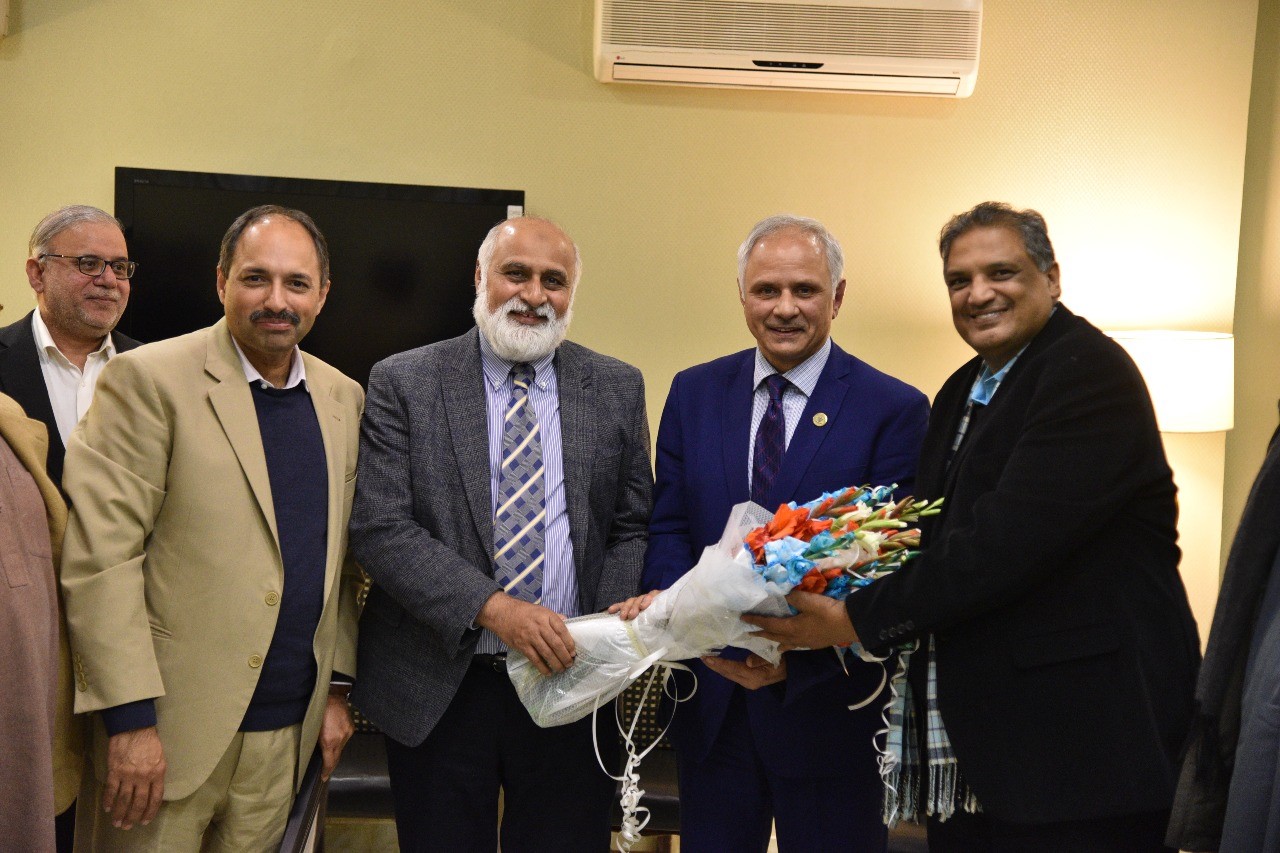GCU VC Highlights Problems In Education System, Says It Confronts ‘Diversity, Curiosity And Creativity’
LAHORE– There are three very basic principles on which human life flourishes i.e. diversity, curiosity and creativity, but very unfortunately they are contradicted by a culture of education that is currently prevalent in our country.
It was said by Prof. Dr. Asghar Zaidi, an international social policy expert and Vice Chancellor of GC University Lahore, at a ceremony held in his honor at University the Punjab. Vice Chancellor Prof. Dr. Niaz Ahmad Akhtar hosted the ceremony attended by eminent academicians, senior journalists and analysts.
Talking about the problems in Pakistan’s education system, Prof. Zaidi said that all human beings were naturally different from each other but standardization culture in their education system was not based on diversity but conformity.
He said that students could learn and excel best with a broad-based curriculum that celebrated their various talents, not just through a small arrangement of course system and examinations.
Prof. Zaidi said the “second principle that drives human life is curiosity; if a teacher can just light the spark of curiosity in a student, he will learn without any assistance.” He believes that instead of focusing only on improving system, the government and policy-makers needs to focus more on teachers to make them creative.
“There is no system, r any school or a university in the world that is better than its teachers,” he said.
The Vice Chancellor, who did his PhD from Oxford University, UK, stressed that teachers were not there just to pass on received information; great teachers didn’t do that, rather this sacred profession was all about mentorship.
He criticized that education system in Pakistan didn’t focus on teaching and learning instead it just prepared students for a standardized testing mostly through rote learning.
“This system of examination encourages our student and teachers to follow same kind of routine every year instead of using classrooms as platforms to excite the power of imagination and curiosity in our youth,” he said.
Prof. Zaidi demanded that at least in schools, they needed to have a human system instead of a course system. He called upon policy-makers to study the education system of Finland where there was no standardized testing in schools.
Talking about GCU, Prof. Zaidi said it was a matter for great pride for him to be appointed as VC of this historical institution. “There was a lot to be proud of in the history and traditions of GCU, yet it has a little time to rest on these laurels. The strategic need is to develop the potential of our faculty and staff to maximize our contributions to the rest of society,” he added.
He said that besides improving quality of teaching, they were working towards strengthening its research and innovation base and linkages to the policy-making communities.
Prof. Zaidi said that he had proposed the Punjab government a mechanism in the shape of Social Policy Advisory Council through Education (SPACE) to involve experts from universities, non-governmental organizations and international institutions in policy-making for social development, public finance management and improved governance.
He said that his immediate administrative challenge was to modernize the process of admissions and appointments and populating the newly-built campus at the Kala Shah Kaku, enhancing the quality of living experiences of students and staff by building a new hostel for girls and improving the living conditions of our existing hostels.
He said that he was promoting sports, cultural and co-curricular activities through GCU societies and clubs for effective engagement of students on their campuses.

